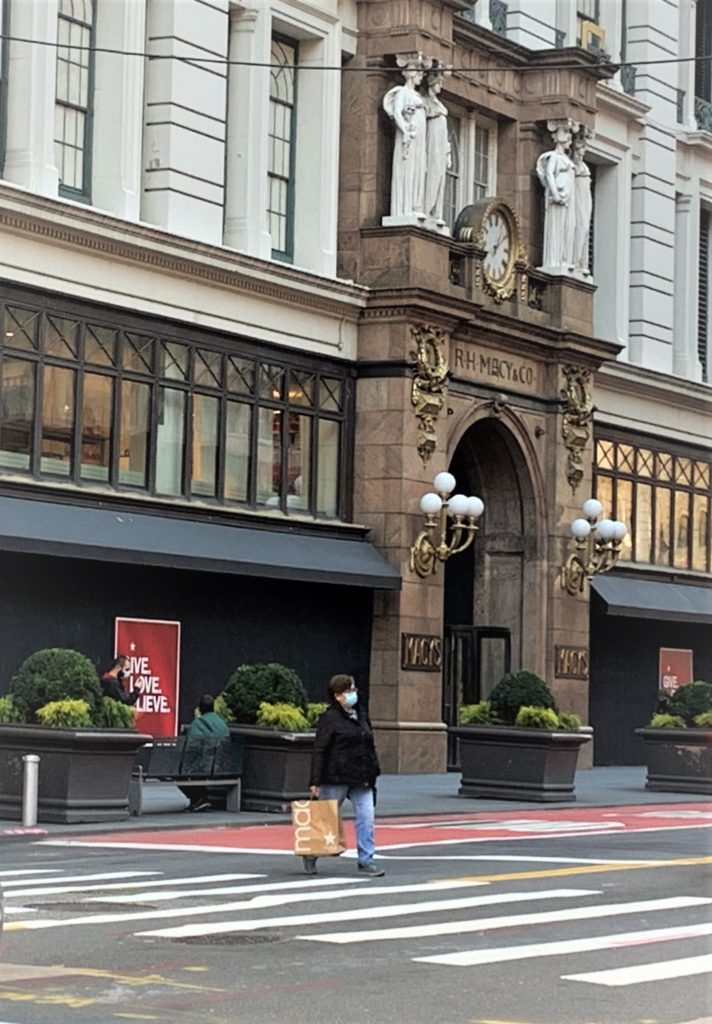—During Taiyuan Era of the Jin Dynasty, there was a man from Wuling prefecture, fishing for a living. One day, rolling along the stream, he lost track of the distance. Suddenly, there were peach trees lining up the banks. For hundreds of steps, there were no other kinds of trees. Fragrant herbs fresh and beautiful, falling petals scattered around. The fisherman, quite astonished, traveled further, hoping to find the end of the forest.
At the source of the spring, the forest ended. There was a hill with a small opening where, seemingly, lights were coming through. . .
Tao Yuanming, the great poet of the Eastern Jin, wrote a poem entitled “Peach Blossom Spring,” accompanied by a prose anecdotal narration:[1]
A fisherman, by accident, found a beautiful peach forest. Hidden behind the forest was an isolated village where, for centuries, folks lived joyfully without the disturbance from the outside world. They had no knowledge of the changes of regimes. The cycles of seasons marked their calendar. They were courteous to the visitor and were curious to hear his stories.
After a few days, as the fishermen prepared to leave, the elders said to him, “What we have here is not worth mentioning to others.” The fisherman left traces along his way out, located his boat, and returned home. His attempts to trace back to the village all failed. An elite, learning the incidence, wished to follow up, yet died before having a chance.
Peach Blossom Spring had since become a symbol of a Utopian world. Some enthusiasts searched for possible locations that inspired Tao. Did he actually need a realistic model for his creation?
Tao Yuanming was born in the late Eastern Jin (c. 365). In his thirties, Tao entered governmental services. Unfortunately, instead of fulfilling his goals of supporting the courts and providing public services, he ended up working under shadowy figure with rebellious ambitions. His poems of this period often reflected his struggles. After several attempts, serving in various capacities, he retreated from public life and return to his hometown. Natural scenery and rustic life became the frequent subjects of his mature works.
The “Peach Blossom Spring” was written in 421, one year after Liu Yu overthrew the Jin court and established Liu Song. Tao used the imaginary village to reflect his ideal. Interestingly, the fisherman did not stay there permanently. Were there things in his old world that he could not let go? Did he intend to bring others into this fantasy land?
亂世 luan shì is a common expression in Chinese, describing a turbulent time. 亂 means “disorderly.” 世 is a complicated word that can be applied to time, as “generation,” “period,” “century;“ and “dynasty,” or applied to space, as the “world.” Anyone who has lived in the States through 2020 should have no problem relating to this expression.
Two days after the election, I was in Midtown Manhattan. All the storefronts, including those of Macy’s flagship store, were boarded up. The message “Give, Love, Believe” in Macy’s iconic red and white was jarring to the eyes as well as to the minds.

I do not dream of colorful spring blossoms or fragrant herbs. I do not need to be living in a fantasy land. Instead, I hope to give more and to love more. I believe that, one day, familiarity will be the norm again. Would this day come soon?
[1]晉太元中,武陵人捕魚爲業。緣溪行,忘路之遠近。忽逢桃花林,夾岸數百步,中無雜樹,芳草鮮美,落英繽紛。漁人甚異之。復前行,欲窮其林。 林盡水源,便得一山,山有小口,髣髴若有光。便捨船,從口入。初極狹,纔通人。復行數十步,豁然開朗。土地平曠,屋舍儼然。有良田美池桑竹之屬。阡陌交通,鷄犬相聞。其中往來種作,男女衣著,悉如外人。黃髮垂髫,並怡然自樂。 見漁人,乃大驚,問所從來。具答之。便要還家,設酒殺鷄作食。村中聞有此人,咸來問訊。自云先世避秦時亂,率妻子邑人來此絶境,不復出焉,遂與外人間隔。問今是何世,乃不知有漢,無論魏晉。此人一一爲具言所聞,皆歎惋。餘人各復延至其家,皆出酒食。停數日,辭去。此中人語云:「不足爲外人道也。」 既出,得其船,便扶向路,處處誌之。及郡下,詣太守,説如此。太守即遣人隨其往,尋向所誌,遂迷,不復得路。 南陽劉子驥,高尚士也,聞之,欣然規往。未果,尋病終。後遂無問津者。
notes_on_the_peach_blossom_spring/www.theworldofchinese.com
